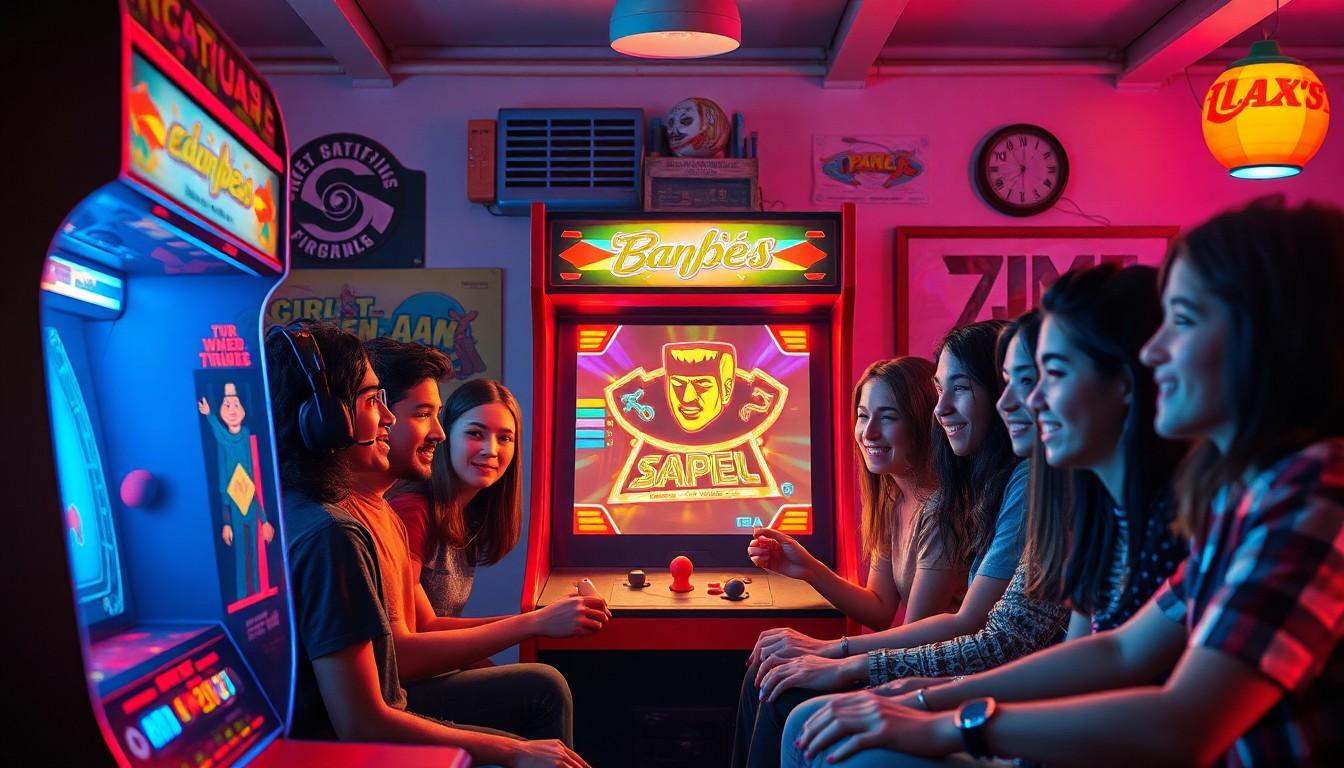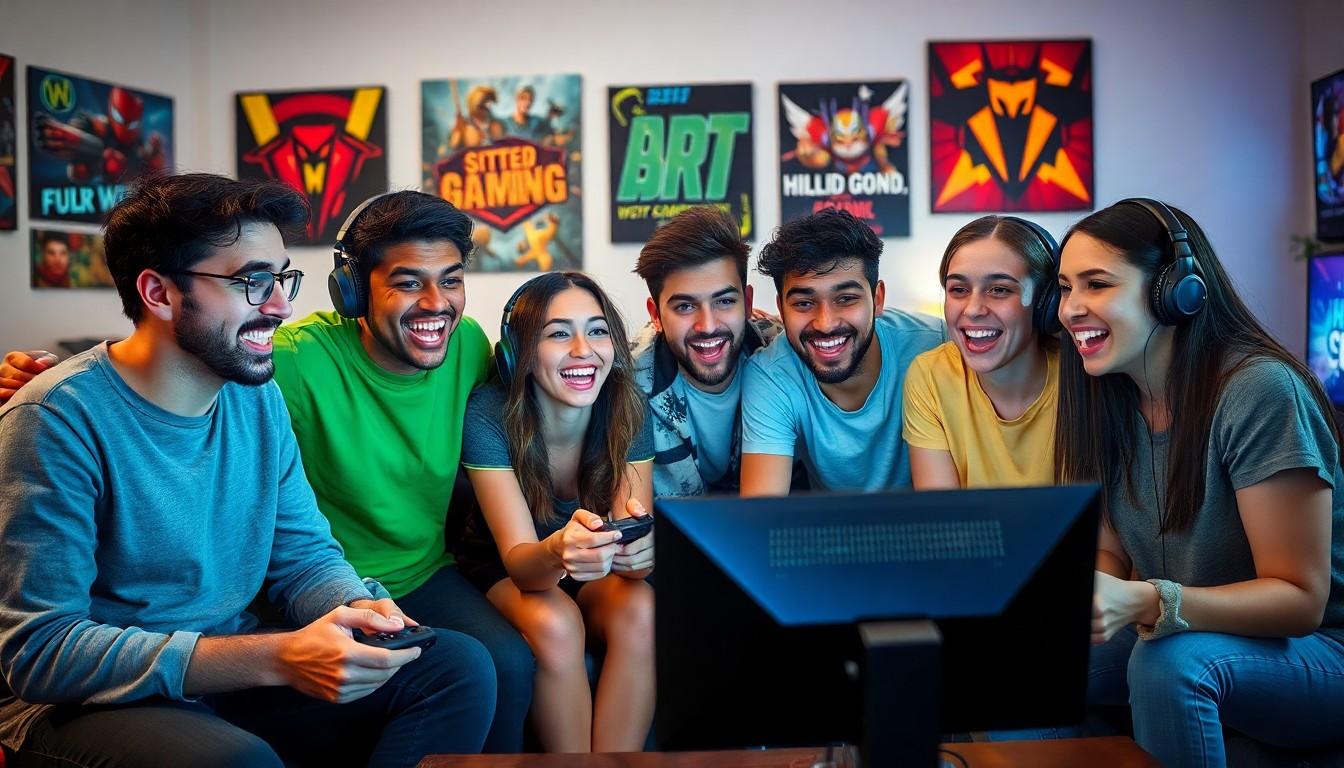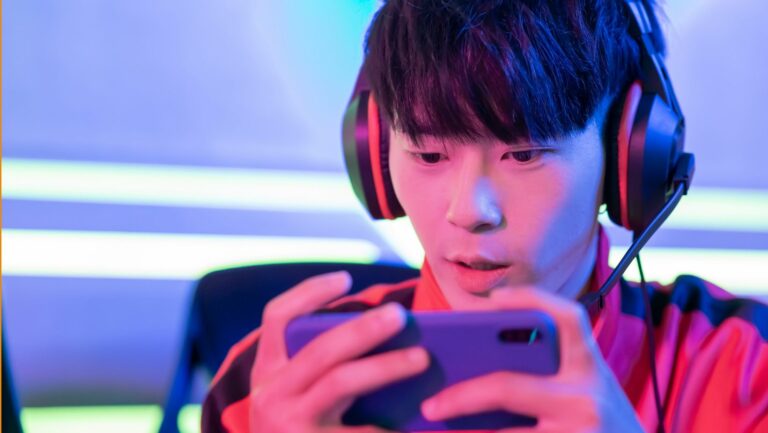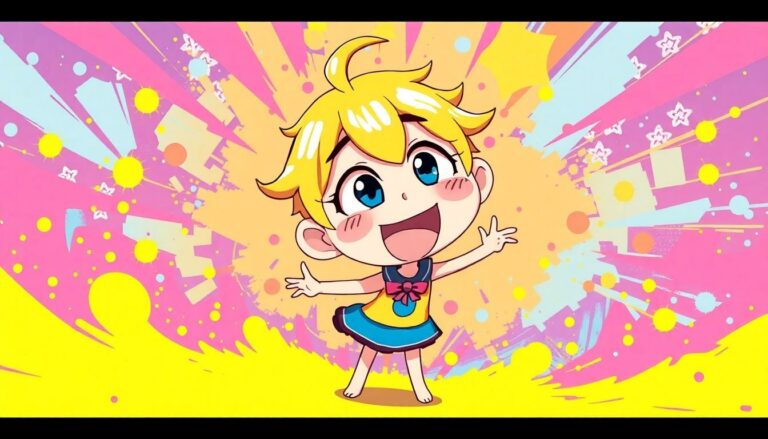In a world where pixels reign supreme and high scores can spark heated debates, video game culture has evolved into a vibrant tapestry of creativity, community, and competition. From epic quests in fantastical realms to the thrill of multiplayer mayhem, gamers have forged a unique identity that transcends mere entertainment. It’s not just about leveling up; it’s about the friendships formed, the laughter shared, and the unforgettable moments that keep players coming back for more.
As gaming continues to break barriers and redefine social interactions, it’s time to dive into the fascinating world of video game culture. Whether you’re a seasoned pro with a collection of rare collectibles or a casual player just trying to figure out which button does what, there’s something in this culture for everyone. So grab your controller and get ready to explore the quirky, passionate universe where gaming isn’t just a hobby—it’s a lifestyle.
Video Game Culture
Video game culture encompasses a vast array of elements that shape the gaming experience. Communities form through shared interests, often intensifying friendships and connections. Online platforms host discussions about game mechanics, storylines, and strategies, creating spaces for players to engage and collaborate.
Competitive gaming or esports has gained immense popularity, attracting significant viewership and participation. Tournaments offer substantial cash prizes, drawing attention from sponsors and mainstream media. The rise of streaming platforms allows gamers to broadcast gameplay, fostering real-time interaction with audiences.
Game development combines artistry and innovation, pushing creative boundaries. Developers continuously experiment with gameplay mechanics and narratives, leading to the emergence of new genres. This evolution influences cultural trends, as games reflect societal themes, norms, and issues.
Inclusive practices promote diversity within the gaming community. Representation of various identities in games encourages wider player engagement. This shift has initiated conversations about gender, race, and accessibility in gaming, contributing to a more welcoming atmosphere.
Content creation around video games has flourished. YouTubers and streamers produce Let’s Play videos, reviews, and tutorials. These creators often cultivate dedicated followings, enhancing their influence on gaming culture.
Gaming conventions showcase the industry’s latest innovations and provide networking opportunities. Events like E3, PAX, and Comic-Con attract thousands of attendees. These conventions allow fans to meet developers, participate in panels, and experience exclusive game previews.
Video game culture thrives on creativity, competition, and a sense of community. The influence of technology continues to reshape it, impacting social interactions and cultural discussions.
Historical Context

Video game culture has a rich history that reflects technological advancements and changing social dynamics. This evolution has shaped modern gaming experiences and communities.
Evolution Of Video Games
The journey of video games began in the 1970s with simple arcade machines. Titles like “Pong” introduced interactive entertainment outside traditional media. In the 1980s, home consoles like the Atari 2600 made gaming accessible, driving a surge in popularity. The 1990s introduced 3D graphics, enhancing visual storytelling and gameplay complexity. Fast-forward to the 2000s, and online multiplayer experiences transformed gaming into a social event. Recent years have seen innovations in virtual and augmented reality, pushing creative boundaries. These developments transformed video games into diverse forms of entertainment, appealing to various audiences.
Impact Of Early Games
Early video games laid the groundwork for future development. Platforms like “Space Invaders” and “Pac-Man” captivated players, fostering initial gaming communities. These pioneers also influenced later genres and introduced competitive play, sparking interest in organized tournaments. The rise of computer games in the 1980s brought new narratives and experiences, appealing to a broader demographic. Moreover, educational games emerged, demonstrating gaming’s potential for learning. Overall, these formative years established a foundation that continues to shape the gaming sector, paving the way for today’s expansive and dynamic video game culture.
Current Trends In Video Game Culture
Video game culture continuously evolves, showcasing a blend of innovation and interaction. The following trends highlight significant aspects shaping this dynamic field.
Streaming And Esports
Streaming and esports remain at the forefront of video game culture. Twitch and YouTube Gaming attract millions of viewers, creating platforms for interaction. Gamers enjoy live broadcasts that allow real-time communication. Esports, in particular, has transformed competitive gaming. Major tournaments feature substantial cash prizes, drawing massive viewership numbers. In 2021, the global esports audience reached 474 million, reflecting its growing influence. Players not only compete but also engage with fans online. This engagement enhances community connections, solidifying gaming as a mainstream entertainment source.
Community Engagement
Community engagement plays a crucial role in modern gaming culture. Online forums, social media, and Discord servers foster friendships among gamers. Players connect through shared interests, creating supportive environments. Many communities host events, including game nights and tournaments, promoting participation. In 2019, 74% of gamers reported enjoying multiplayer experiences that increased social interaction. Activities such as fan art and modding encourage creativity while strengthening community ties. Representation matters, with diverse voices influencing game development, themes, and narratives. This inclusivity invites a broader range of players, enriching the gaming landscape and ensuring a vibrant culture.
Representation In Video Games
Representation in video games plays a crucial role in shaping perceptions and fostering inclusivity within the gaming community. It influences player experience and game narratives.
Diversity And Inclusion
Diversity and inclusion are essential for creating immersive gaming environments. Developers incorporate a range of backgrounds, ethnicities, and experiences into their characters. Data from the International Game Developers Association (IGDA) indicates that diverse teams produce more innovative games. Players relate better to characters that reflect their realities. Inclusion helps widen audience engagement and promotes understanding among different cultures.
Gender Representation
Gender representation significantly impacts gaming culture. Female characters often appear as stereotypes, yet recent developments are shifting this narrative. A 2021 report revealed that 48% of gamers identify as women, emphasizing the importance of authentic representation. Strong female protagonists in games like “The Last of Us Part II” have gained critical acclaim. Developers now prioritize character depth and complexity, allowing for richer storytelling that resonates with wider audiences.
The Future Of Video Game Culture
Emerging technologies will significantly transform video game culture. Virtual reality (VR) and augmented reality (AR) are poised to create more immersive experiences for players. These technologies promise interactive environments where players feel fully part of the game world. Cloud gaming platforms broaden access by enabling players to stream high-quality games on various devices. Blockchain technology introduces unique ownership models, allowing players to genuinely own in-game assets and trade them. Artificial intelligence enhances game design by personalizing gameplay, making experiences more engaging and adaptable.
Predictions indicate continued growth in esports viewership and player participation. The global esports audience is expected to surpass 500 million by 2024. Challenges arise from issues related to regulation, particularly for betting and sponsorships. The industry must address concerns about inclusivity, ensuring diverse voices contribute to game development. Developers face the task of creating content that resonates with a broader audience. As gaming evolves, maintaining a balance between innovation and player needs becomes crucial.
Innovation and Connection
Video game culture is a dynamic and ever-evolving landscape that reflects creativity and community. As it continues to grow, the importance of inclusivity and representation becomes increasingly clear. Gamers are not just players; they are part of a global community that thrives on shared experiences and connections.
The rise of esports and streaming platforms has transformed gaming into a social phenomenon, engaging millions worldwide. Looking ahead, advancements in technology promise to further enhance the gaming experience, making it more accessible and immersive.
As the culture develops, it’s essential to embrace diverse voices and perspectives, ensuring a vibrant future for gaming that fosters innovation and connection.





